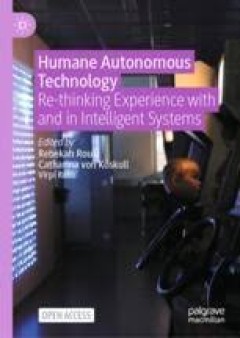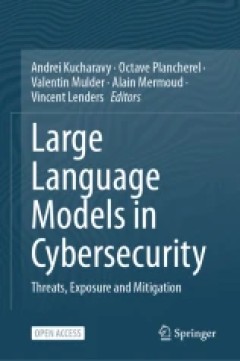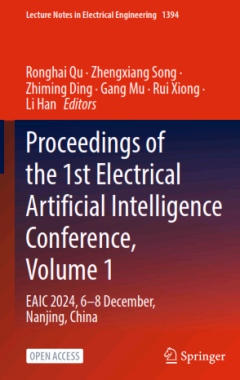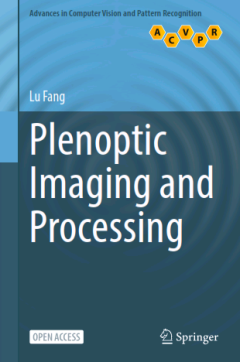Filter by

The Ndebele, Frank Oates, and Knowledge Production in the 1870s = Encounters …
This open access book addresses a question fundamental to the histories of empire and Africa: at the point of the colonial encounter, how was knowledge made? How did different communities, with little or no prior contact, construct meaning about one another? Amidst huge changes in the politics and economics of a continent, on the cusp of almost complete colonization at the hands of European pow…
- Edition
- -
- ISBN/ISSN
- 9783031759635
- Collation
- IX, 125 hlm; ill., lamp.,
- Series Title
- -
- Call Number
- -

The Menstrual Movement in the Media = Reducing stigma and tackling social ine…
- Edition
- -
- ISBN/ISSN
- 9783031721946
- Collation
- X, 331 hlm; ill., lamp.,
- Series Title
- -
- Call Number
- -
- Edition
- -
- ISBN/ISSN
- 9783031721946
- Collation
- X, 331 hlm; ill., lamp.,
- Series Title
- -
- Call Number
- -

Humane Autonomous Technology : Re-thinking Experience with and in Intelligent…
This open access book takes a human-focused multidisciplinary look at the ways in which autonomous technology shapes experience, affecting human lives and ways of working in settings ranging from the arts, design, and service to maritime and industry. The book focuses on the humane, observing how technology can be designed and implemented in an ethical, human-centered way. Chapters in this book…
- Edition
- -
- ISBN/ISSN
- 9783031665288
- Collation
- -
- Series Title
- -
- Call Number
- -

Large Language Models in Cybersecurity : Threats, Exposure and Mitigation
This open access book provides cybersecurity practitioners with the knowledge needed to understand the risks of the increased availability of powerful large language models (LLMs) and how they can be mitigated. It attempts to outrun the malicious attackers by anticipating what they could do. It also alerts LLM developers to understand their work's risks for cybersecurity and provides them with …
- Edition
- 1st Edition
- ISBN/ISSN
- 9783031548277
- Collation
- -
- Series Title
- -
- Call Number
- -

Worlds of Labour Turned Upside Down = Revolutions and Labour Relations in Glo…
This volume offers a bold restatement of the importance of social history for understanding modern revolutions. The essays collected in Worlds of Labour Turned Upside Down provide global case studies examining: - changes in labour relations as a causal factor in revolutions; - challenges to existing labour relations as a motivating factor during revolutions; - the long-term impact of revolut…
- Edition
- -
- ISBN/ISSN
- '9789004440395
- Collation
- 348 hlm; ill., lamp.,
- Series Title
- Studies in Global Social History, Volume: 41
- Call Number
- -

Translating Technology in Africa. Volume 2: Technicisation
This volume revisits one of the great challenges of our time - the global circulation of technology and the resulting technicisation. Together, the introductory essay and six case studies argue that while circulation inevitably leads to the global standardisation of some forms, successful technicisation depends on local appropriation that takes place in the interstitial zones of translation. Th…
- Edition
- -
- ISBN/ISSN
- '9789004688285
- Collation
- 220 hlm; ill., lamp.,
- Series Title
- -
- Call Number
- -

Translating Technology in Africa. Volume 1: Metrics
Translating Technology in Africa brings together authors from different disciplines who engage with Science and Technology Studies (STS) to stimulate curiosity about the diversity of sociotechnical assemblages on the African continent. The contributions provide detailed praxeographic examinations of technologies at work in postcolonial contexts. The series of 5 volumes aims to catalyse the deve…
- Edition
- -
- ISBN/ISSN
- 9789004678354
- Collation
- 192 hlm; ill., lamp.,
- Series Title
- -
- Call Number
- -

Proceedings of the 1st Electrical Artificial Intelligence Conference, Volume …
Buku akses terbuka ini adalah volume pertama dari prosiding Konferensi Kecerdasan Buatan Listrik 1 (EAIC 2024). Kecerdasan buatan dan ekonomi rendah karbon adalah dua bidang penelitian yang berkembang pesat di dunia saat ini. Mencapai tujuan netralitas karbon tidak hanya menandakan transformasi signifikan dalam mode pertumbuhan ekonomi dan penyesuaian mendalam terhadap sistem energi, tetapi jug…
- Edition
- -
- ISBN/ISSN
- 978-981-96-4856-6
- Collation
- online resource ( VII, 242 Pages)
- Series Title
- Catatan Kuliah di bidang Teknik Elektro
- Call Number
- 006.306 ZHE e

Plenoptic Imaging and Processing
Buku akses terbuka ini menggali prinsip-prinsip dasar dan teknik-teknik mutakhir dari pencitraan dan pengolahan plenoptik. Diambil dari kata Latin "plenus" (yang berarti "penuh") dan "optik", pencitraan plenoptik menawarkan pendekatan yang transformatif terhadap pencitraan optik. Tidak seperti sistem konvensional yang bergantung semata-mata pada model kamera lubang jarum untuk menangkap informa…
- Edition
- -
- ISBN/ISSN
- 978-981-97-6915-5
- Collation
- online resource ( XIII, 390 Pages)
- Series Title
- Kemajuan dalam Visi Komputer dan Pengenalan Pola
- Call Number
- 006.42 LU p

Planung und Durchfuhrung von Missionen autonomer Drohnen im Schwarm
Buku akses terbuka ini membahas perencanaan misi swarm drone otonom sebagai sistem terdistribusi. Ini dipahami sebagai alat yang serbaguna, yang mencakup aspek deskriptif, desain, dan aplikatif. Pengembangan sektor UAV memerlukan pendekatan interdisipliner untuk mengatasi tantangan dan mengeksplorasi bidang aplikasi baru. Pemahaman yang komprehensif tentang sistem UAV sangat penting untuk membu…
- Edition
- -
- ISBN/ISSN
- 978-3-658-47725-7
- Collation
- online resource ( XVII, 219 Pages)
- Series Title
- -
- Call Number
- 006.38 NAT p
 Computer Science, Information & General Works
Computer Science, Information & General Works  Philosophy & Psychology
Philosophy & Psychology  Religion
Religion  Social Sciences
Social Sciences  Language
Language  Pure Science
Pure Science  Applied Sciences
Applied Sciences  Art & Recreation
Art & Recreation  Literature
Literature  History & Geography
History & Geography